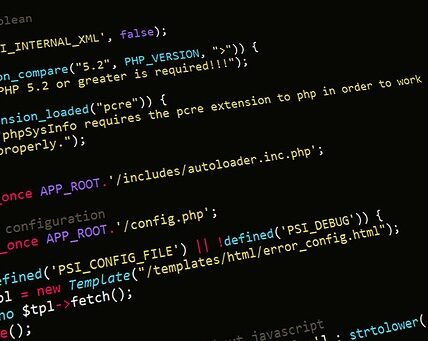As the world of software development continues to become more sophisticated, developers have had to adapt to the ever-evolving technology landscape. GitHub Copilot is a new tool that seeks to integrate powerful automation into this landscape, offering a streamlined approach to developing projects. But how are developers taking to this new tool? In this article, we’ll look into the reactions of developers to GitHub Copilot, examining the pros and cons they perceive, so you can make an informed decision about using it for your development projects.
When it comes to digital development, it’s no secret that project workflow can be complex and time consuming. Developers across the world regularly find themselves bogged down with manual tasks, taking away from the time they could be focused on coding. What’s more, an ever changing technology landscape further complicates the development process – is there any way to make the workflow simpler?
Recent research has indicated that many developers are turning to automation in order to streamline their processes. Such automation tools are seen to be cost-effective and time-saving, and have become increasingly popular among the development community. GitHub Copilot is seen as a leader in this space, offering a novel approach to automating the development process and optimizing workflow, but what do developers really think of it?
In this article you will learn what developers are saying regarding GitHub Copilot, including the pros and cons they list when discussing the tool. We will look into the features and aspects of GitHub Copilot that are praised, as well as the areas which developers believe need improvement. Through doing so, we can gain greater insights into how GitHub Copilot is being received, helping you decide whether it’s the right tool to use for your development projects.

Definitions:
GitHub Copilot is a service that helps developers understand and use the version control system GitHub. It offers a comprehensive suite of tools that can help developers automate their workflow, collaborate with others, and push their code to GitHub with ease. With GitHub Copilot, developers can manage multiple code repositories, troubleshoot authentication errors, and easily review and approve code changes. This service is beneficial for developers who work on multiple projects and need to stay up to date with their code on GitHub.
Version control system: A version control system is an application that tracks the history of changes made to a project. It records who made the change, when and what. It helps developers keep track of different versions of their code and collaborate on projects.
Automate workflow: Automating a workflow means programming tasks and software so that they can be done automatically and more efficiently. GitHub Copilot lets developers automate certain tasks related to their projects, such as pushing code to GitHub, pulling down code from GitHub, and running tests on the code.
Troubleshoot authentication errors: Authentication errors are errors that occur when a user attempts to log into a system but cannot be authenticated. GitHub Copilot helps developers troubleshoot authentication errors quickly, so they can get back to their work faster.
Review and approve code changes: Code changes are modifications made to the project’s code. GitHub Copilot allows developers to review and approve these changes before they are pushed to GitHub. This helps ensure that only the correct code is pushed to the project.
GitHub Copilot is a powerful tool that can help developers improve their workflow and collaboration. With its comprehensive suite of tools, developers can automate tasks, troubleshoot errors, review and approve code changes, and much more. It’s a great resource for developers looking to improve their version control system and make their lives easier.
A Glimpse Into How Developers React to GitHub Copilot
What is GitHub Copilot?
GitHub Copilot is a new extension by GitHub that helps developers to reduce the complexity of their codebase and receive feedback in order to improve their process. It can analyze your codebase and deliver tailored guidance on how to structure, improve, and maintain it. It also offers an easy way to manage and keep track of projects, including organization structure, domain logic, testing strategies, and other best practices in the industry.
Developers’ Reaction to GitHub Copilot
As with any other new technology, developers have responded to GitHub Copilot with a mix of both enthusiasm and skepticism. While some have praised the extension’s ability to streamline their workflows and increase efficiency, others are hesitant to trust the program’s automated capabilities.
Those who have embraced the tool appreciate its power to organize projects, highlight coding mistakes, and suggest better ways to maintain the codebase. Developers who have taken the time to study how GitHub Copilot works say that it can detect problems in the code before they even occur, prevent bugs from propagating, and make overall improvements in the codebase.
At the same time, those developers who are uncertain of the program’s abilities have voiced concerns about its potential faults. They have expressed worries about the accuracy of the analysis, the security of the system, and the potential for errors due to algorithmic bias.
Benefits of Using GitHub Copilot
Despite the initial hesitance of some developers, the benefits of using GitHub Copilot outweigh any possible downside. Developers who have embraced the program have found numerous helpful features, such as:
- 1.Real-time code analysis that can help catch problems before they occur.
- 2.An easy way to manage projects and keep track of development progress.
- 3.Suggestions on how to structure, improve, and maintain code.
- 4.Information on domain logic, testing strategies, and best practices.
In addition, many developers have cited increased confidence in their code and improved development cycles. Some have seen an increase in team efficiency due to the automated feedback generated by GitHub Copilot.
Overall, as more and more developers explore and implement the benefits of using GitHub Copilot, it’s clear that the tool is here to stay. By helping to streamline projects, reduce coding complexity, and continually improve the development process, GitHub Copilot is a welcome addition to any team.
Exploring the Impact of GitHub Copilot on Developer Experiences
Exploring Problem of Developer Experiences With GitHub Copilot
The recent launch of GitHub Copilot has caused quite a stir in the software development world, with developers of all levels of experience exploring the potential the new offering has to offer. Of particular interest is the impact GitHub Copilot has had on the experiences of developers, from the novices to the veterans. In this article, we’ll take a closer look at how the new product has changed the way developers work, and draw insight from best practices on how businesses can best use the technology to benefit developers of all levels.
Thought-Provoking Questions About Using GitHub Copilot
At first glance, it’s clear that GitHub Copilot has revolutionized the way many developers approach coding projects. Gone are the days of relying solely on a single toolset or spending countless hours tinkering with code to figure out how to reach a desired outcome. But how have these changes actually affected developers on an individual level?
Questions such as “Does simplified onboarding lead to increased productivity?”, “Do developers with less experience gain more confidence with GitHub Copilot?”, and “Can businesses utilize this technology to better address complex challenges?”, remain unanswered, and begin to address the various impacts developer experiences could potentially see.
Uncovering the Benefits of Using GitHub Copilot
The simplest answer to these questions is an unqualified “yes”; however, the tangible benefits businesses and individual developers can gain from using GitHub Copilot go far beyond increased efficiency. By providing more efficient learning resources, seamless coding solutions, and overall simpler onboarding than many other software development solutions, GitHub Copilot takes away barriers that previously existed and made it difficult for individuals of all levels to make their mark.
Businesses can make the most of this technology by ensuring their developers are equipped with the proper training and resources, such as GitHub Copilot GitHub Academy. Additionally, having a repository of properly documented code examples for developers to refer to is key in creating a cohesive, team-based workflow. This helps to create an environment of openness and trust, which allows for more experienced members of the team to offload their worries and give guidance to newer developers. Finally, positioning the technology as the “go-to” solution for coding-related challenges helps to reduce time wasted in development by streamlining workflows and encouraging efficiency.
Unpacking the Change That GitHub Copilot Brings to the Developer Landscape
Investigating the Impact
GitHub Copilot has revolutionized the way developers collaborate, and the effects of this platform can be felt widely. The question is, how have these changes been received, and is it a welcome addition for developers? To gain insight into the change GitHub Copilot brought to the developer landscape, it’s important to investigate the impact it has had on the community as a whole.
One of the key benefits of GitHub Copilot is that it streamlines the process of running and maintaining projects. This can provide developers with a more efficient way of working, allowing them to better manage their time and resources. Furthermore, it can help teams collaborate in a more streamlined way, making remote working easier. This is particularly useful in the current climate, where many teams are working remotely due to COVID-19. With such an effective platform, developers have been able to keep their projects running and maintain a good level of collaboration with ease.
Exploring Best Practices
In addition to the convenience of using a platform like GitHub Copilot, it’s also essential to explore how developers can use it most effectively. This involves learning best practices for using social coding platforms and exploring new ways of working with GitHub Copilot. One of the key things to consider is the use of version control systems, which can be used to effectively manage workflows. This can also help create a clearer structure for teams, enabling them to assign roles and track progress more effectively.
It’s also important to explore how developers can use GitHub Copilot to their advantage. This might involve creating templates and automating tasks, for instance. This can then help reduce the time and effort required to complete a task, as well as allowing for more collaboration between teams. Projects can also be more effectively managed, with clear goals being set, and deadlines being identified. Overall, this can lead to better project outcomes due to the increase in collaboration and efficiency provided by GitHub Copilot.
Finally, it’s also essential to explore the security features available with GitHub Copilot. This includes the ability to control access to files and projects, and the ability to monitor user activity. This can help ensure that any sensitive information is kept safe and secure, while also enabling team members to work together safely and securely.
GitHub Copilot has had a significant impact on the developer landscape, and it’s clear that developers are embracing this change. With thought-provoking best practices being explored, they can make sure they are using this platform to its full potential, which is essential to ensure project success.
Conclusion
Overall, developers have responded positively to GitHub Copilot, finding it to be a useful addition to their workflow. With features like pull request reviews, repository navigation, project templates, and CI/CD, GitHub Copilot helps developers create, manage, and collaborate on code more effectively than ever before. As the product continues to improve with each release, it’s likely to become even more popular and widely-used among developers.
This leads to an interesting question: how has GitHub Copilot changed the way that developers work? By lowering the barrier to collaboration and making certain processes more straightforward, it could have changed the way people build and maintain software across entire organizations. Will other products begin to emulate its features, or is GitHub Copilot uniquely capable of accommodating developer needs?
If you’re interested in learning more about GitHub Copilot and other similar tools, we recommend that you follow our blog. Here, we will keep you up-to-date with the latest releases and updates, allowing you to stay informed so that you can continue to be productive and successful. Be sure to check back often – who knows, there might be something new just around the corner!
F.A.Q.
Q1: How does GitHub Copilot work?
A1: GitHub Copilot is a workflow tool that helps developers streamline their workflows by automating tasks and simplifying day-to-day activities. It also helps developers collaborate better, review each other’s code, and automate tasks across different repos.
Q2: What kind of tasks can GitHub Copilot automate?
A2: GitHub Copilot can automate on-boarding tasks, maintain dependencies, merge pull requests, analyze code, and schedule releases. It can also help developers in product and marketing tasks such as creating feature flags, tracking analytics, and scheduling campaigns.
Q3: Is GitHub Copilot cloud-based?
A3: Yes, GitHub Copilot is a cloud-based tool that runs on GitHub, allowing developers to connect all of their repos, branches, and pull requests into one unified dashboard. It also connects all of their tasks across different teams and repos for more efficient collaboration.
Q4: Is GitHub Copilot secure?
A4: Yes, GitHub Copilot is built with security in mind. It encrypts all data and keeps credentials secure throughout the process. It also provides security controls to define what type of access individual users have to the data.
Q5: How user-friendly is GitHub Copilot?
A5: GitHub Copilot is designed to be user-friendly and intuitive for developers of all levels. It comes with a simple and easy-to-use interface that is customizable, allowing developers to set up their workflows quickly and easily.




